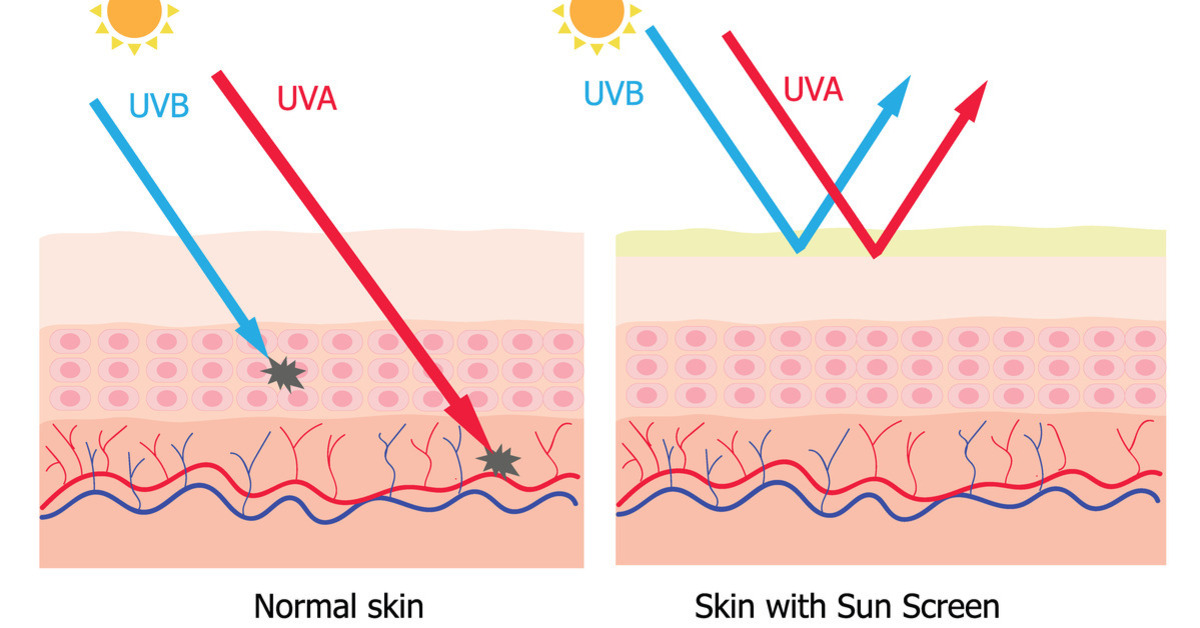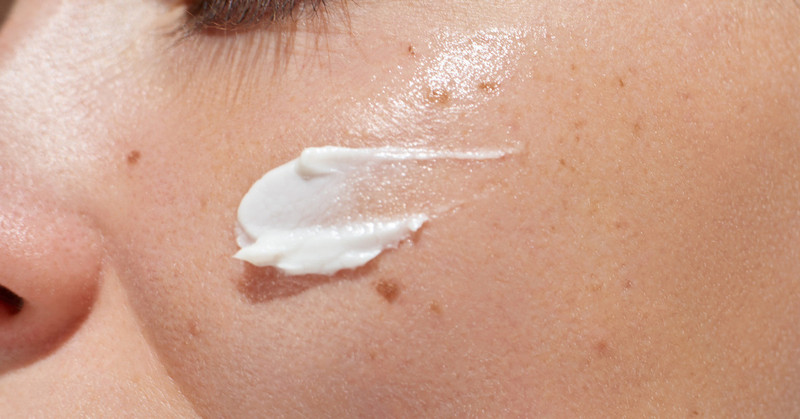Sunscreen is a crucial component in skin care—and for a good reason. Its ability to shield the skin from harmful UV rays makes it essential for maintaining a healthy complexion, but what exactly makes sunscreen so effective, and why is it indispensable?
Whether you’re a skin-care enthusiast or simply looking for ways to better protect your skin, understanding how sunscreen works to protect your skin will take your skin-care routine to the next level.
The Science Behind Sunscreen
Sunscreen may appear to be a simple cream or lotion, but it contains complex science. Its organic and inorganic active ingredients work in harmony to reflect, scatter, or absorb the sun’s rays. Organic components absorb UV radiation and convert it to heat, while inorganic ingredients, such as zinc oxide and titanium dioxide, serve as physical barriers that deflect harmful rays.
Understanding sunscreen’s science is pivotal for appreciating its role in skin-care routines. Choosing the right sunscreen for you is all about balance—pick a product that provides effective protection while being gentle on the skin. Knowing how these ingredients function helps you select the right sunscreen for your needs, guaranteeing optimal protection and comfort.

Why Sunscreen Is Essential
Sunscreen’s importance extends beyond merely preventing sunburn. Consistent use can significantly lower the risk of developing the deadliest form of skin cancer—melanoma. Additionally, sunscreen helps avert premature aging from sun exposure, such as wrinkles and age spots.
For anyone enthusiastic about caring for their skin, sunscreen’s benefits are undeniable. It’s an effective means to preserve youthful, healthy skin, and by incorporating sunscreen into your daily routine, you shield yourself from the sun’s damaging effects and ensure your skin remains radiant and resilient.
Decoding SPF and Its Importance
The sun protection factor, known as SPF, measures the percentage of protection the sunscreen provides from harmful UVB rays that cause sunburn and skin cancer. For instance, a sunscreen with an SPF of 30 will block roughly 97 percent of UVB rays, and an SPF of 50 sunscreen blocks around 98 percent. Unfortunately, no sunscreen can block 100 percent of UVB rays, which highlights the need for additional sun protection measures.
Choosing the right SPF can make a significant difference. Most people should use a broad-spectrum SPF 30 sunscreen. This level of protection is generally adequate for everyday activities, but those spending extended time outdoors might prefer higher SPF levels.
Correctly Applying Sunscreen
The effectiveness of sunscreen relies on its application. For optimal protection, apply sunscreen generously 15 minutes before sun exposure, allowing it to absorb fully into the skin. Remember to cover often-missed areas like the ears, neck, and tops of feet.
Reapplication is essential, particularly after swimming, sweating, or towel-drying. Typically, you should reapply sunscreen every two hours under normal conditions. By applying sunscreen correctly, you ensure your skin remains protected, enabling you to enjoy the outdoors without worry.
Sunscreen for Sensitive, Acne-Prone Skin
Finding the right sunscreen for sensitive, acne-prone skin can be daunting, but the key is to opt for non-comedogenic products that won’t clog pores. Mineral-based sunscreens, using zinc oxide or titanium dioxide, are often gentler and less likely to cause breakouts compared to chemical alternatives.
Choosing sunscreen for sensitive skin involves more than selecting a non-comedogenic formula. Check the ingredient list for potential irritants like fragrances and oils. Opting for a fragrance-free and oil-free sunscreen can minimize irritation and breakouts, ensuring your skin remains calm and protected.
The Role of Broad-Spectrum Protection
Broad-spectrum sunscreen guards against both UVA and UVB rays, making it essential in any sun protection strategy. While UVB rays are the biggest culprits of sunburn, stronger UVA rays contribute to premature aging and increase the risk of skin cancer by penetrating deeper into the skin.
Ensuring your sunscreen offers broad-spectrum protection provides comprehensive defense against the sun’s harmful effects and is a straightforward step that can significantly impact your skin’s health.
Choosing the Right Sunscreen for You
With numerous options available, selecting the right sunscreen can feel overwhelming. Start by considering your skin type and specific needs. For sensitive or acne-prone skin, choose a gentle, non-comedogenic formula. For those with dry skin, a moisturizing sunscreen may be beneficial.
Considering your daily activities is also crucial. If you spend a lot of time outdoors, consider using a water-resistant formula with a higher SPF. By assessing your unique needs, you can find a sunscreen that seamlessly fits into your routine, providing the protection your skin deserves.
Sunscreen and the Environment
You should also consider sunscreen’s environmental impact. Some chemical ingredients can harm marine life, especially coral reefs. Choosing reef-safe sunscreen—products free from harmful chemicals like oxybenzone and octinoxate—protects the environment.
Making environmentally conscious choices when selecting sunscreen is a small but impactful step, and by choosing reef-safe options, you contribute to preserving marine ecosystems, helping the oceans remain vibrant and healthy for future generations.
Integrating Sunscreen Into Your Routine
Incorporating sunscreen into your daily routine is more straightforward than you might think. Apply it as the final step in your morning skin-care regimen, after moisturizing but before makeup. Many modern sunscreens double as primers, creating a smooth base for makeup application.
Remember, sunscreen isn’t just for sunny days—UV rays can penetrate clouds, meaning sun protection is necessary even on overcast days. By making sunscreen a regular part of your routine, you safeguard your skin year-round, maintaining its health and vitality.

Common Myths About Sunscreen
Misinformation about sunscreen often leads to inadequate protection. A common myth suggests that darker skin tones don’t need sunscreen, but while melanin provides some natural protection, it doesn’t prevent damage from prolonged exposure to harmful UV rays.
Another misconception is that sunscreen causes vitamin D deficiency. Although it can slightly reduce vitamin D production, incidental sun exposure typically provides enough vitamin D. By debunking these myths, you can use sunscreen effectively, ensuring optimal protection.
Next Steps for Skin-Care Enthusiasts
Understanding sunscreen’s benefits and how it works to protect your skin lays the groundwork for effective skin care. By choosing the right products and using them correctly, you protect your skin from damage, maintaining its health and beauty over time.
For those interested in exploring further, consult with a dermatologist or skin-care professional to tailor your sun protection strategy. They can provide personalized recommendations, helping you make informed choices that enhance your skin-care routine and overall well-being.
Sunscreen is more than just a skin-care product—it’s a vital tool in preserving your skin’s health and longevity. By understanding how sunscreen works to protect your skin, you can make informed choices that keep your skin radiant and resilient. Whether you’re a skin-care enthusiast or you’re aiming to protect your skin, sunscreen is an indispensable ally.

